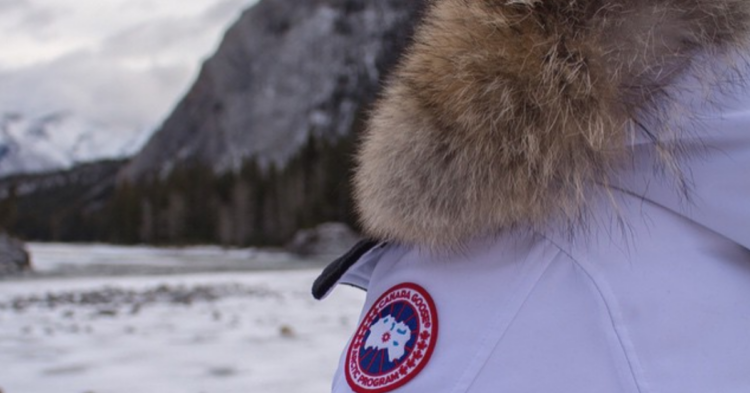Anybody who lives in a cold climate can tell you that a good winter jacket and good winter boots tend to be worth the price. As much as it’s difficult to shell out the big bucks sometimes, you’ll never regret being warm. However, for many people out there, it can be difficult to find the right trade-off between what’s effective at retaining heat, and what’s ethical.
So, Canada Goose, the maker of iconic, high-end winter wear that can run upwards of $1,000 for a jacket, has announced a change to its practices: it will no longer use new fur, CBS News reported.
Although having that Canada Goose patch on your parka has long been a fashion statement, it has also raised the ire of animal welfare activists.

The company’s stores have seen plenty of protests out front as activists try to draw attention to the use of down and fur in its parkas, and has been a particular target of People for the Ethical Treatment of Animals for the better part of the past two decades.
Up until now, Canada Goose has sourced its fur from suppliers in Western Canada and the U.S.

However, the company maintains that the natural coyote fur that lines its jackets, which it says performs optimally in extreme environments, never comes from fur farms. The company has always denied accusations of animal cruelty, saying that it does “not condone any willful mistreatment, neglect, or acts that maliciously cause animals undue suffering.”
Nevertheless, the company has admitted that there are better, more “sustainable” ways for it to source fur, namely using reclaimed fur that’s already on the market rather than new fur.
In a statement, Canada Goose said that the change they’re making was not due to pressure from activists, however.

“We’re absolutely not switching for any other reason than we believe switching from new fur to reclaimed fur makes something sustainable more sustainable,” Canada Goose’s chief executive, Dani Reiss, told the Financial Times .
“In the North, sustainability is a way of life and people there have been working with reclaimed fur for centuries,” the company’s statement said. “This initiative draws inspiration from that resourcefulness. We are proud to announce this commitment because we believe we must operate sustainably.”
However, animal rights groups are not entirely swayed by Canada Goose’s move.
Canadian animal rights group Animal Justice called it a “stunning reversal,” but said it was only a “partial victory,” according to Global News .
“It would be better for the company to abandon fur and down altogether,” the group said, noting that California has coincidentally banned the sale of new fur.
PETA, however, was not willing to go as far as Animal Justice was.

“Canada Goose is attempting to ‘humane wash’ its image by switching from fur taken from coyotes whom trappers have recently caught in steel traps to fur that may already be on the market, which is also a product of the cruel actions of trappers,” the group’s executive vice president, Tracy Reiman, told CBS News.
“Real fur is always cruelly obtained—no matter when it was stolen from coyotes who may have attempted to chew off their own leg in order to return to their young and been beaten or shot by trappers.”
Canada Goose has no plans to switch from natural down for its jackets anytime soon.

The company says that natural down “is the best natural source for warmth per weight ratio.” Canada Goose has at least signed the responsible down standard, which “aims to ensure that down and feathers come from animals that have not been subject to unnecessary harm,” and intends to comply with it by 2021.
The switch to reclaimed fur should be complete by 2022, the company said. California’s ban on new fur products goes into effect in 2023.
h/t: CBS News , Global News

















































